NDO - Criminals impersonating bank employees offer credit card limit increases, make fraudulent phone calls promising refunds to account holders, request personal information, and steal money from banks. These cybercriminals also use methods to bypass biometric authentication.
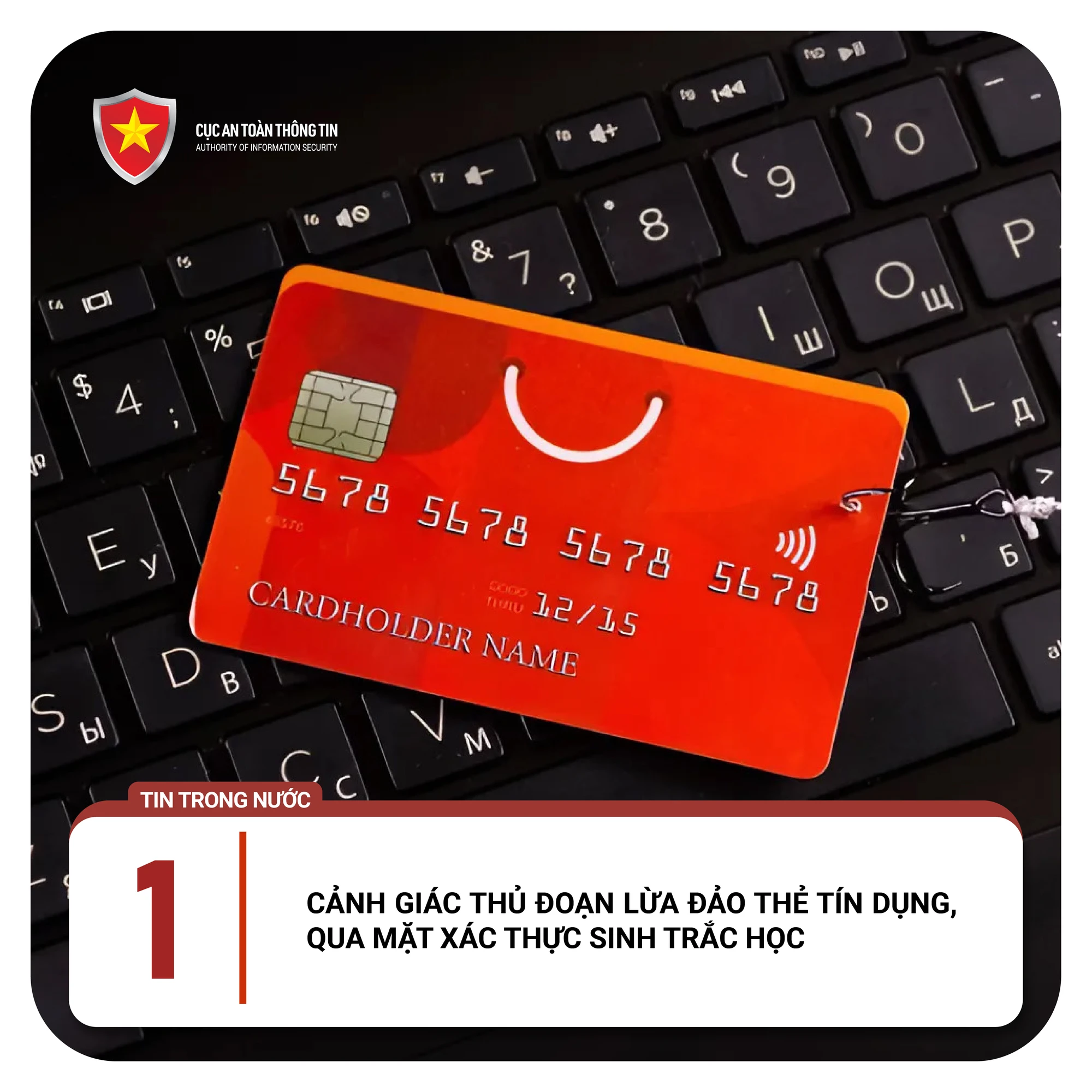 |
According to the Long An Provincial Police, various fraudulent schemes and abuses of online payment transactions are currently emerging. Solutions are needed to protect citizens from these increasingly sophisticated forms of fraud.
Criminals impersonate bank employees, offering to increase credit card limits, making fraudulent phone calls promising refunds to account holders, requesting personal information, and stealing money from banks. Cybercriminals also use methods to bypass biometric authentication.
Many users of fake apps with malicious intent also become victims in scams. Numerous scams and fraud schemes involving the theft of assets through banking transactions have emerged.
Following this information, the Cybersecurity Department ( Ministry of Information and Communications ) advises people to be cautious of calls from individuals claiming to be bank employees offering online support.
Never follow instructions or provide sensitive personal information or OTP codes (CVV stands for Card Verification Value, a 3-digit number printed on the back of your Visa card) to strangers. Note that banks will never ask users to provide these codes.
Avoid accessing suspicious links or installing apps from unknown sources; only download apps from reputable app stores to prevent device hijacking or information theft.
Do not enter credit card information on unfamiliar websites or sites where you have never transacted before. If you suspect you have been scammed, you should immediately report it to the authorities or consumer protection organizations for assistance, resolution, and timely prevention.
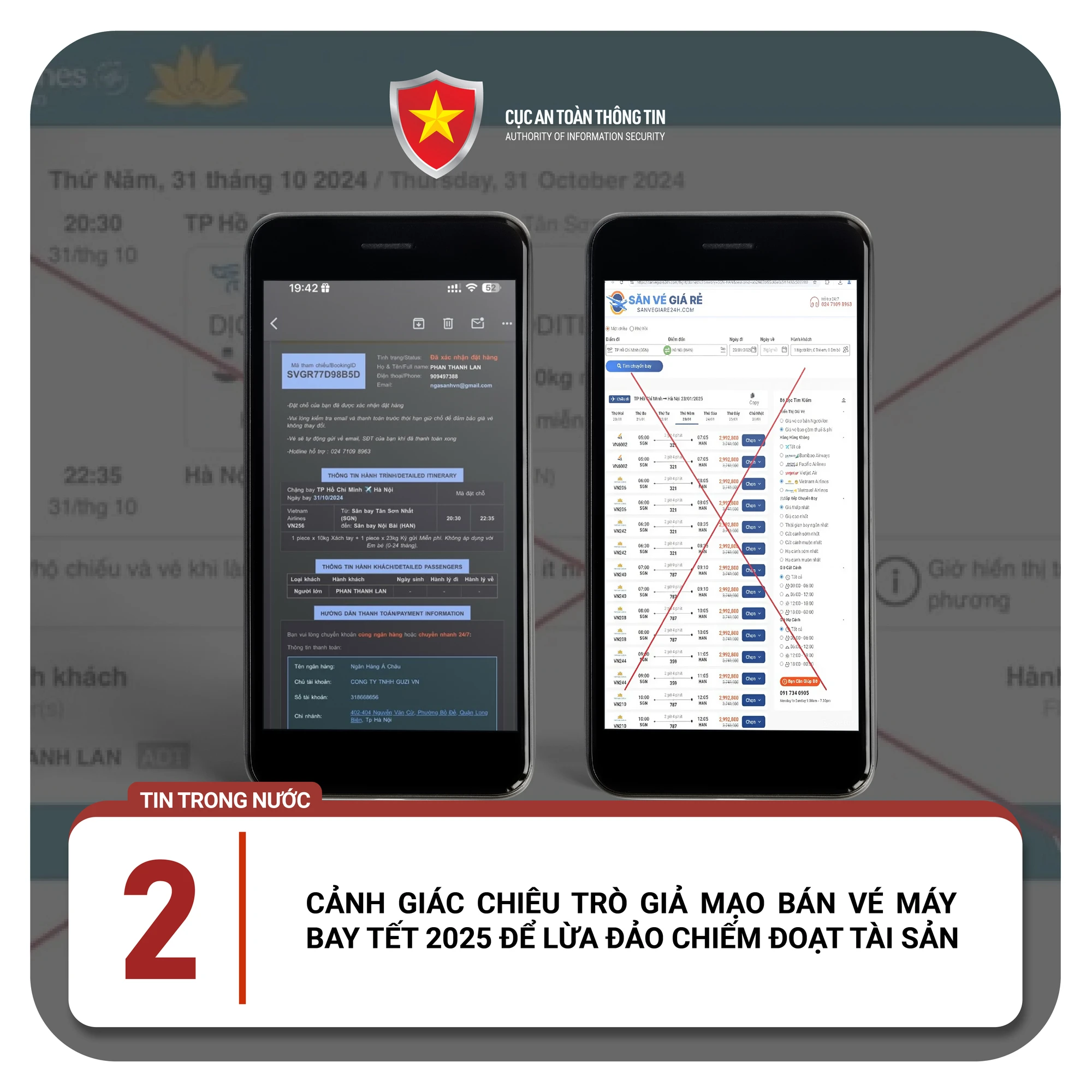 |
Vietnam Airlines warns of scammers using sophisticated tricks and schemes to sell cheap Tet (Lunar New Year) 2025 flight tickets to deceive customers.
Recently, Vietnam Airlines and relevant authorities have noted several cases of websites, organizations, and individuals falsely claiming to be agents of the airline. Specifically, some websites have similar domain names that can easily mislead customers, such as: vietnamairslines.com; vietnamaairlines.com; vietnamairlinesvn.com; vemaybayvietnam.com. These websites have addresses, interfaces, colors, and logos designed to be similar to the official Vietnam Airlines website (https://www.vietnamairlines.com), making it very difficult to distinguish them from the official Vietnam Airlines website.
The perpetrators typically impersonate first-tier ticket agents of Vietnam Airlines. When customers go through the ticket purchasing process, they receive a booking code as proof and are advised to pay immediately or their booking will be cancelled. After receiving the money, the perpetrators do not issue the tickets and cut off all contact.
Transactions are conducted online, and after payment, customers only receive a booking code; the agent does not issue the ticket. Because the booking code has not been issued as a flight ticket, it will be automatically canceled after a period of time, and customers will only find out about this when they arrive at the airport to check in.
Additionally, some scammers send emails or messages notifying customers that they have "won a prize" or received a flight ticket offer. When customers click on the attached link and provide their information, the scammers will steal credit card information or request payment.
In addition to the methods mentioned above, many scammers, after receiving money from customers, still issue tickets but then cancel them (at the customer's expense) and keep a large portion of the ticket price paid by the buyer.
In response to these sophisticated scams, the Information Security Department (Ministry of Information and Communications) advises people who need to book airline tickets, train tickets, etc., to conduct transactions through official websites, mobile applications, or directly at ticket offices and official agents of the airlines.
Customers purchasing airline tickets online should pay special attention to accessing the airline's official website or contacting the call center directly if they need assistance or answers regarding bookings and ticket purchases.
If you receive offers for airline tickets that are significantly cheaper than the airline's stated price, don't book immediately. Verify the information beforehand, as it could be a scam by malicious individuals. Avoid accessing suspicious links or downloading applications from unknown sources to prevent your device from being compromised and your assets being stolen.
In case of suspected fraud, citizens should immediately report it to the authorities or through the Vietnam Cybersecurity Warning System (canhbao.khonggianmang.vn) to receive timely support, resolution, and prevention.
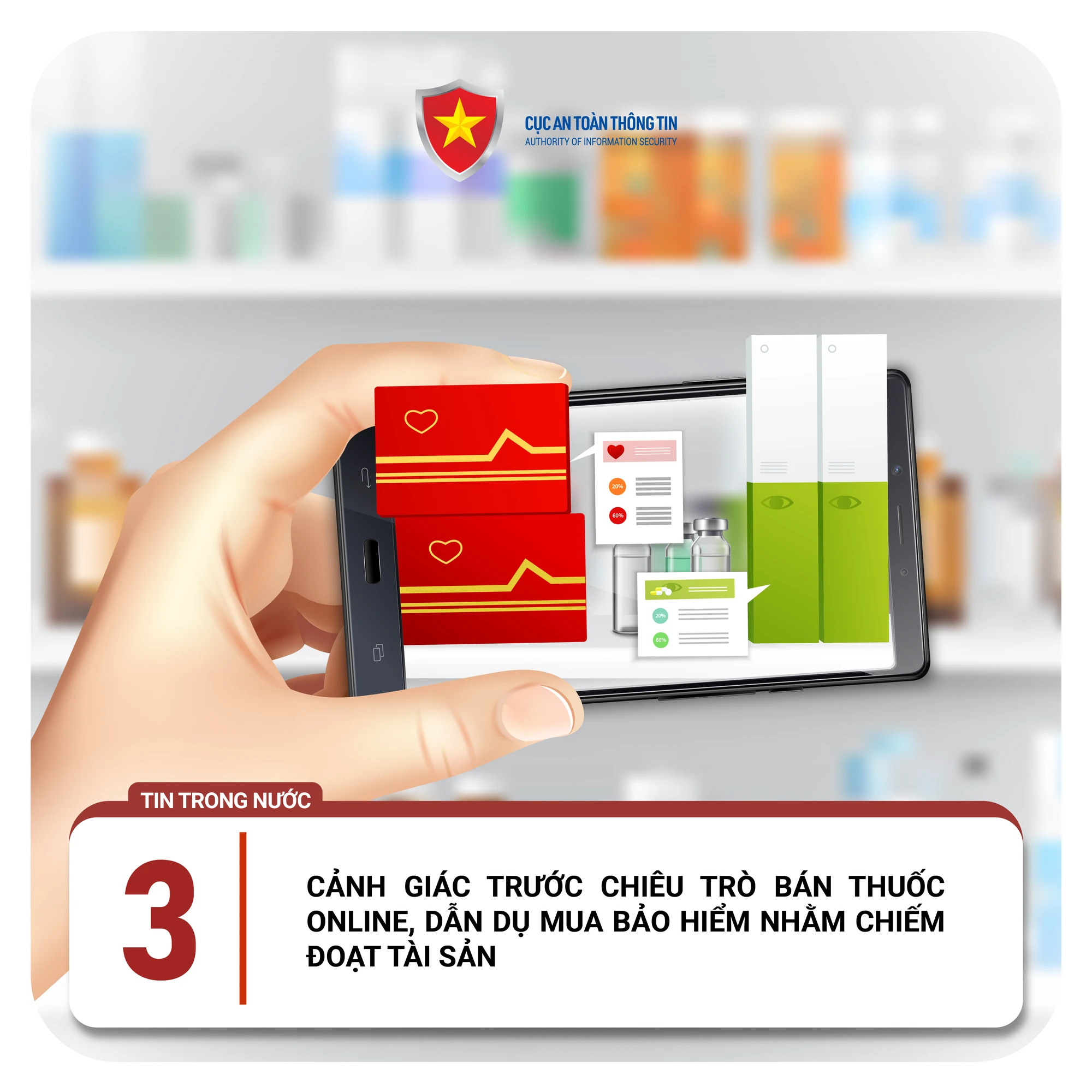 |
Trusting two drug sales consultants who promised to help her buy insurance and receive monthly payments, a woman in Thai Binh province was scammed out of over 200 million VND.
At the police station, the two fraudsters confessed that, lacking money for personal expenses, they sought out information about sick people to call, get acquainted with them, and offer advice on selling medication. If they found the victims to be gullible, they would talk to them to build trust and entice them with promises of helping them buy insurance to receive monthly payments. Using this method, the perpetrators defrauded Ms. M of a total of over 200 million VND.
A common tactic used by these scammers is to operate in groups, creating fake social media accounts and posting advertisements for "miracle" drugs at exorbitant prices. Many of these pages lack contact information, only providing phone numbers for consultations.
Besides those who call themselves "consultants," there are others who impersonate doctors at central hospitals to diagnose and prescribe medication. These medications range in price from a few hundred thousand to tens of millions of dong, with various purported uses such as cancer prevention drugs, drugs to reduce the side effects of chemotherapy and radiation therapy, etc., but in reality, they are cheap drugs with ingredients of unknown origin.
More subtly, these groups also employ the tactic of offering "discounts" to the elderly, the poor, and the seriously ill, targeting the preference for promotions among certain consumer groups.
If they perceive the victim to be naive and gullible, the perpetrators may even entice them to buy insurance with incredibly attractive offers and policies in order to steal the victim's assets on a monthly basis.
In light of ongoing scams, the Information Security Department (Ministry of Information and Communications) advises citizens to be cautious about information posted on social media platforms and to verify the authenticity of information or individuals through official websites.
Do not participate in online groups offering services on social media, especially those related to online medical consultations or the sale of prescription drugs. Do not buy or sell drugs of unknown origin, unverified products, or conduct transactions with unknown individuals.
In cases where in-person medical examinations and treatment are not possible, people should only use official, licensed online platforms with clear doctor identity verification systems.
Furthermore, without sufficient understanding of insurance, people should absolutely avoid buying and selling insurance on social media to prevent being defrauded or having their personal information stolen.
If you suspect you have been scammed, you should immediately report it to the authorities or consumer protection organizations for timely assistance, resolution, and prevention.
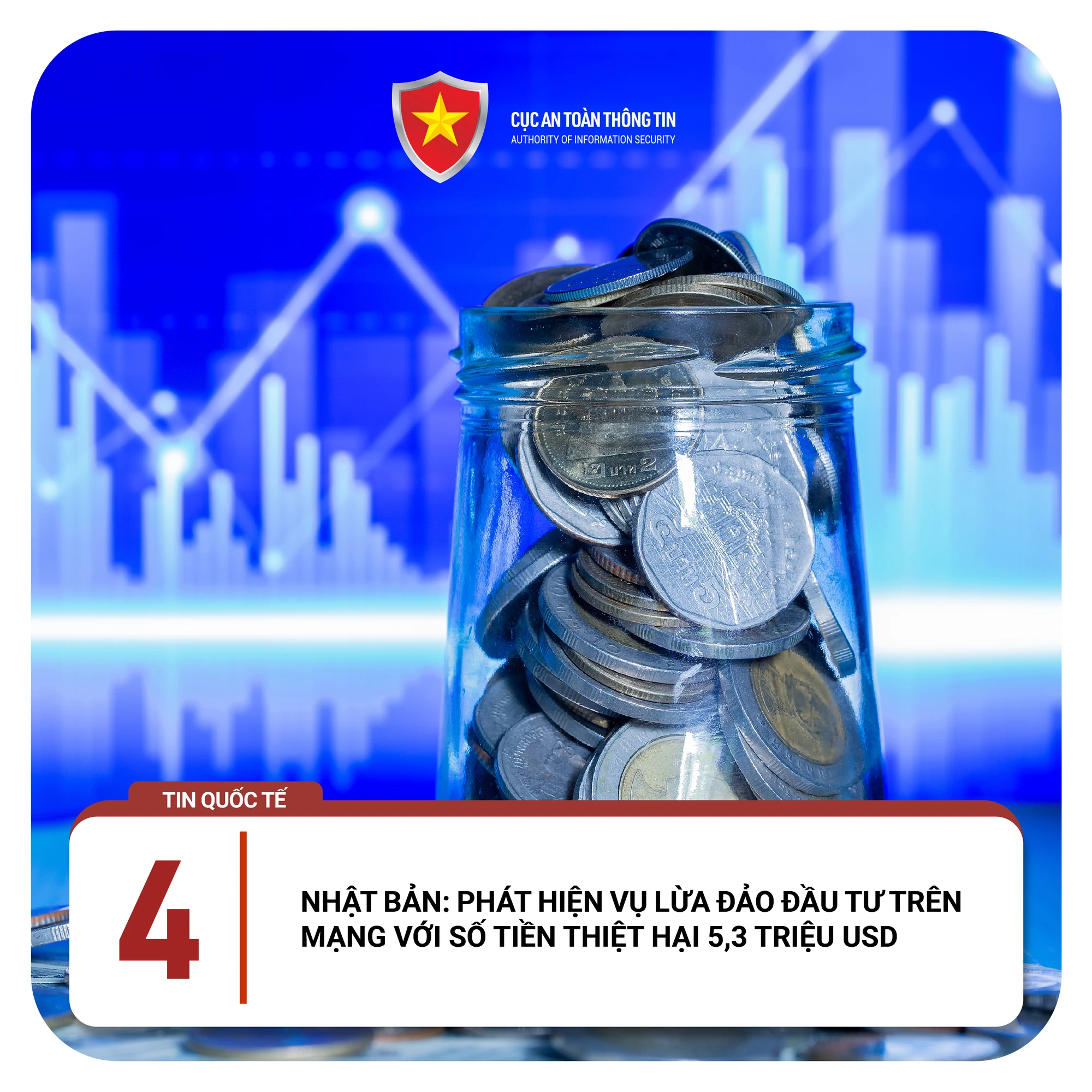 |
On November 12th, Japanese authorities arrested a Chinese man accused of defrauding a 71-year-old woman of 809 million yen (approximately 134 billion VND). This is the largest online investment fraud case ever recorded in Japan.
The arrested man, identified as Wen Zhuolin, 34, claimed to be a company director residing in Sumida Ward, Tokyo. Meanwhile, the victim was the CEO of a company in Ibaraki Prefecture.
Reportedly, Zhuolin created advertisements for the investment program through the social media platform Instagram. In these advertisements, he identified himself as Takuro Morinaga, a Japanese economic analyst, to increase his credibility.
When the victim approached him and expressed interest in investing, Mr. Zhuolin requested that they use the Line messaging app for easier consultation and communication. In just over a month, the victim transferred 10 million yen (approximately 1.6 billion VND) after an individual claiming to be Mr. Morinaga's assistant persuaded them to invest through the app.
Initially, the scammers showed the victim that the investment would generate profits. As a result, the woman continued to transfer or hand over a total of 799 million yen to unknown individuals through 47 transactions.
In light of the incident, the Information Security Department (Ministry of Information and Communications) advises people to be vigilant against advertisements or invitations to participate in financial investments. Carefully verify the information of individuals, entities, or organizations soliciting investments through official news websites.
Never transfer money without verifying the recipient's identity. If you notice any suspicious activity, report it immediately to the police to prevent fraud.
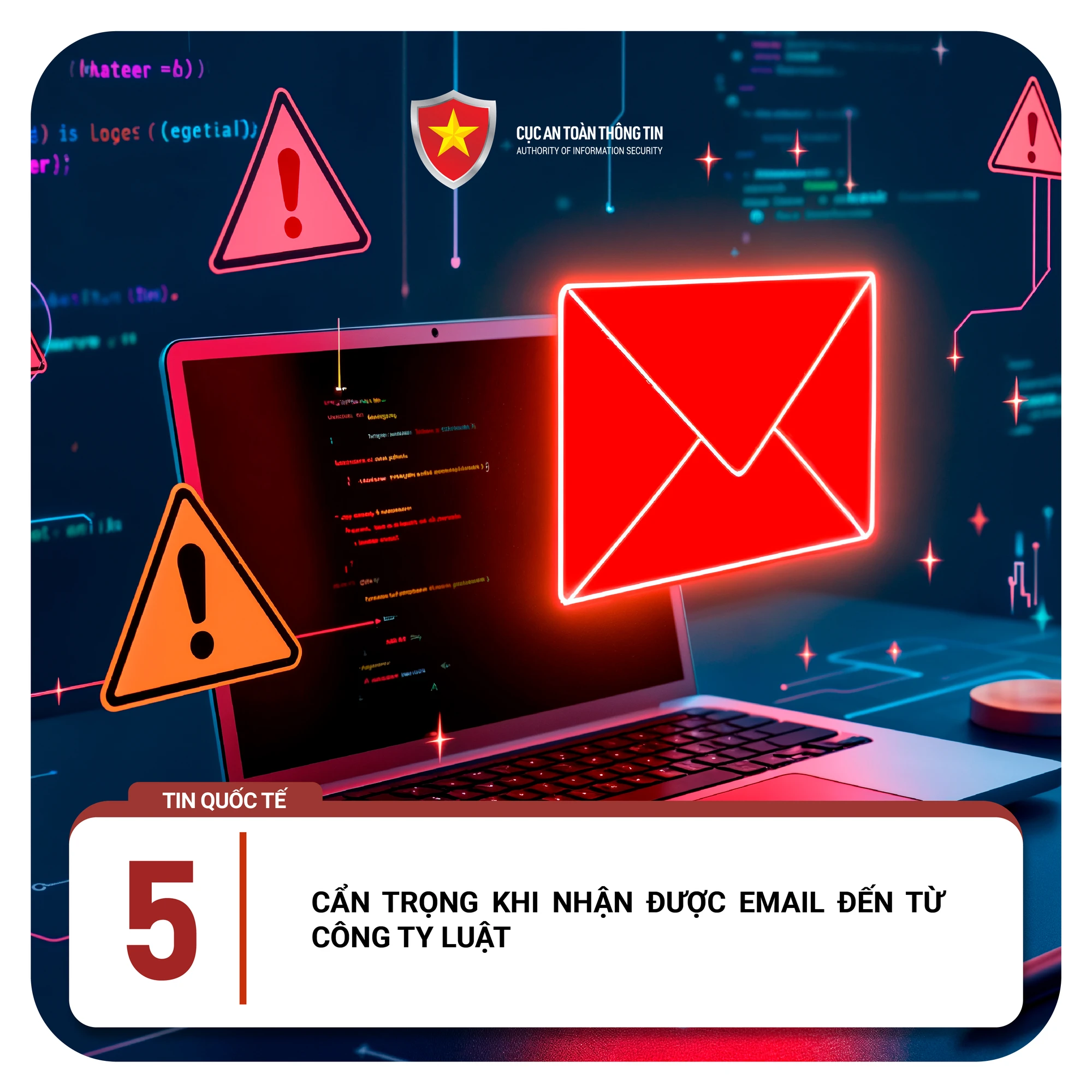 |
The Sedgwick County District Attorney's Office (Wichita, USA) has issued a warning about scams targeting people's finances and information through fake text messages about social security policies.
The perpetrators, posing as employees of a law firm, proactively contacted victims via email. The messages stated that a client of the firm had passed away several years ago, leaving behind an unclaimed insurance payout, and therefore the victim had a chance of receiving the money because their name matched that of the deceased.
The perpetrators further stated that between the company and the beneficiary, 90% of the money would be split according to an agreement, and 10% would be sent to local charities. The victim would then be asked to access a fake website, which featured the company's logo and various images readily available online to increase credibility.
Here, the website will ask the victim to provide information such as full name, phone number, home address, bank card information, etc., to complete the procedure, promising that the victim will receive the insurance money after 20 days.
In response to fraudulent activities, the Information Security Department (Ministry of Information and Communications) advises people to be vigilant when receiving messages notifying them of suspicious payments. Carefully verify the identity and workplace of the sender through official phone numbers or portals.
Absolutely do not reply to messages or follow instructions from individuals whose identities have not been verified. If you receive a suspicious message, report it immediately to the relevant authorities so they can investigate the scam and track down the perpetrator.
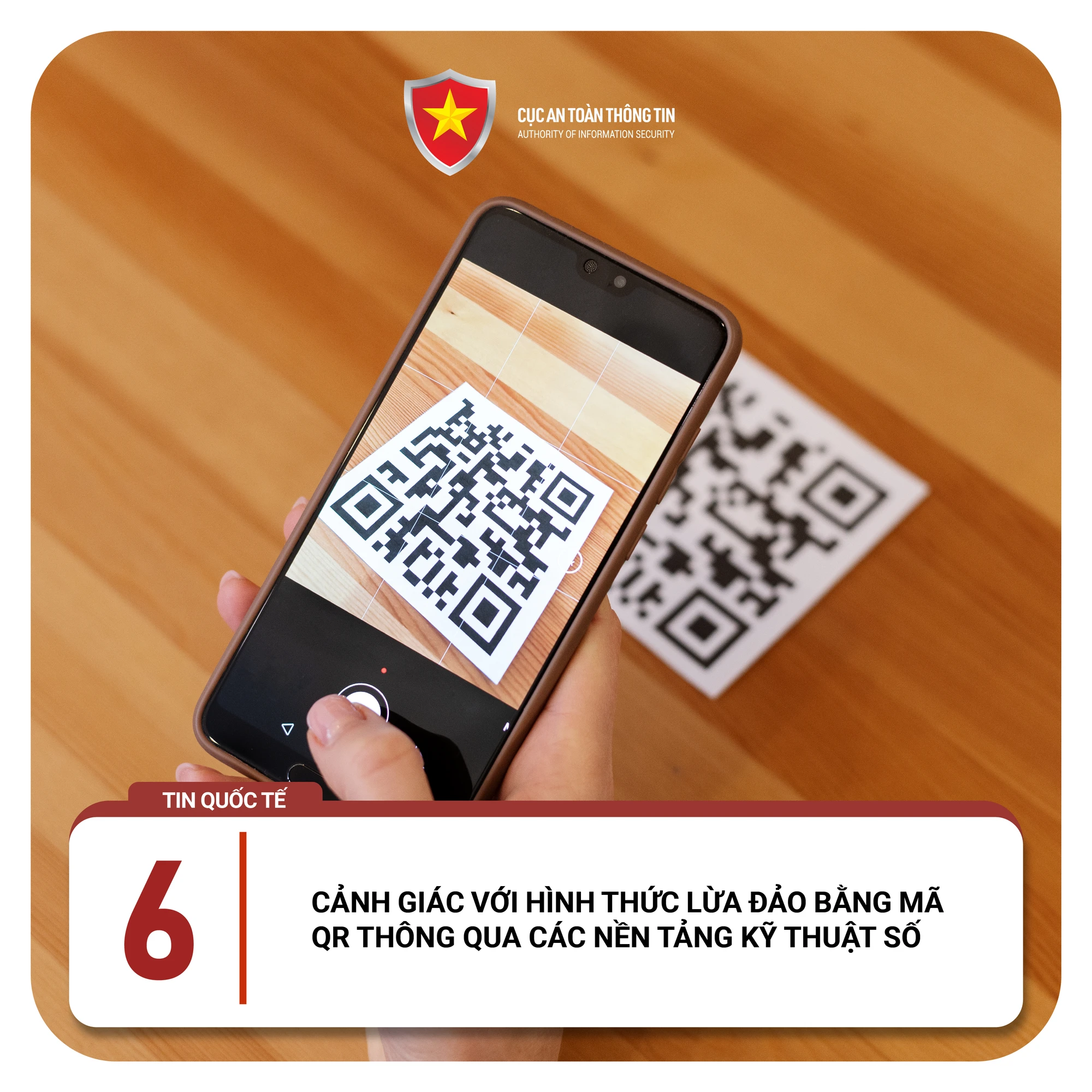 |
According to the UK's National Cyber Security Centre (NCSC) and the US Federal Trade Commission (FTC), QR code scams via text messages, emails, or social media posts are becoming increasingly sophisticated, unpredictable, and are on the rise at an alarming rate.
With QR codes becoming increasingly popular due to their convenience, this easily creates opportunities for malicious actors to carry out scams. One of the scams recently used by these individuals is impersonating banks or financial companies, sending emails to people requesting updates or confirmations of personal information to enhance account security, then attaching a QR code leading to a fake website created with the purpose of stealing user information.
In addition, people may encounter fake QR codes through social media platforms, appearing alongside product advertisements with extremely attractive prices and limited quantities, enticing victims to scan the code leading to websites or applications containing malware, allowing scammers to gain control of their devices.
Another reason this scam is widely used is that QR codes can easily mask fraudulent links and website addresses, making it difficult for users and the security systems of digital platforms to detect them.
Given the increasingly complex nature of scams, the Information Security Department (Ministry of Information and Communications) advises people to be vigilant when encountering messages, emails, or posts containing QR codes.
Carefully verify the information of the individual, entity, or organization providing the QR code through phone numbers or reputable websites. Thoroughly check the domain name and website address after scanning the code; immediately leave the website if you find any strange characters, lack network credentials, or if the domain name does not match a legitimate one.
When detecting signs of fraud, users should promptly report it to the authorities to prevent the fraudulent activity in a timely manner.
Source: https://nhandan.vn/toi-pham-qua-mat-xac-thuc-sinh-trac-hoc-de-lua-dao-post845520.html


















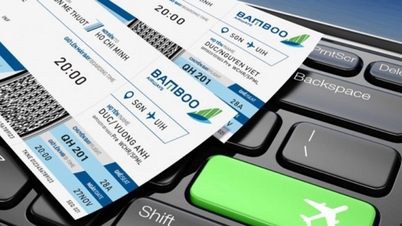































































































Comment (0)